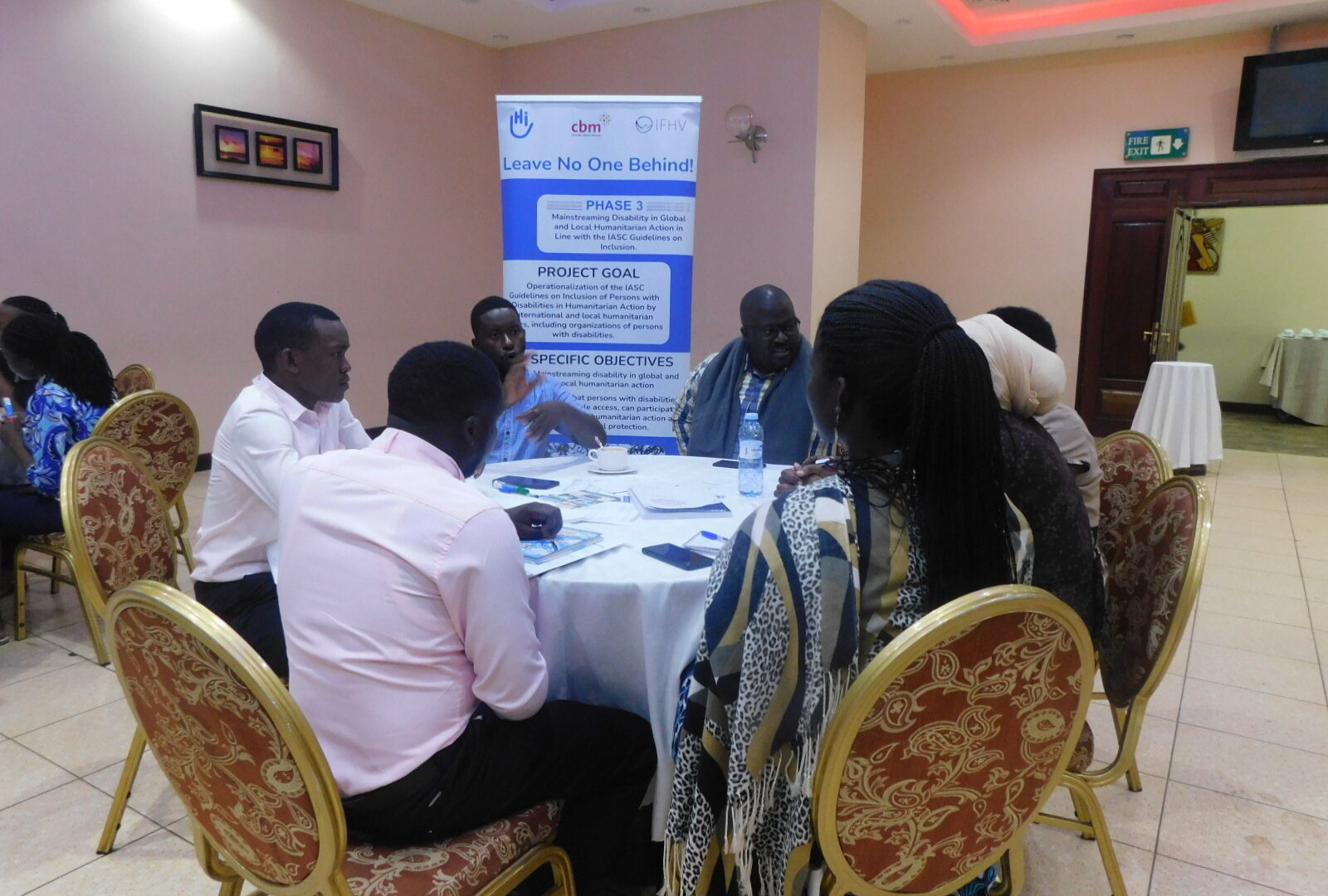Strengthening Disability Inclusion in Uganda: Defining Roles and Establishing Technical Support Mechanisms
Category
Capacity Building IASC-Guidelines Pilot Countries
© Victor ALOCHI/ HI
In September 2024, Humanity & Inclusion (HI) Uganda organized two essential workshops as part of our project. These workshops were designed to reinforce disability inclusion in humanitarian actions by defining the roles of Organizations of Persons with Disabilities (OPDs) and establishing technical support mechanisms with key humanitarian partners.
Held in Kampala, these sessions brought together participants from across Uganda, representing OPDs and humanitarian stakeholders, working collaboratively to ensure more inclusive humanitarian interventions moving forward. The workshops aimed at mapping the impact of humanitarian actions on OPDs and vice versa, as well as raising awareness through strategic initiatives such as the development of Information, Education, and Communication (IEC) materials and dialogues to address existing gaps.
Workshop with OPD’s
The first workshop, held on September 25, convened 33 representatives from 19 OPDs. The discussions were geared towards defining how these OPDs would support and advocate for persons with disabilities in Uganda’s humanitarian interventions, with an emphasis on their active involvement in various phases of humanitarian response, including preparedness, active response, and monitoring and evaluation (MEAL). Efforts to raise awareness included establishing an inter-OPD team of trainers to facilitate capacity-building initiatives and advocate for disability inclusion across all humanitarian phases.
Workshop with Persons with Specific Needs (PSN) Sector Working Group
On September 26, a second workshop was held with 31 participants from 17 partner organizations of the Persons with Specific Needs (PSN) Sector Working Group. The main objective was to develop technical support mechanisms to ensure disability inclusion throughout all phases of humanitarian action, from planning to monitoring. The group focused on enhancing data collection tools and establishing referral pathways to address accessibility issues, aiming for a stronger integration of disability-inclusive practices in Uganda’s humanitarian response.
Outcomes
These workshops were pivotal in ensuring that persons with disabilities are fully considered in Uganda’s humanitarian efforts. Collaborative discussions identified key challenges such as accessibility gaps, limited interaction between OPDs and humanitarian actors, and existing negative attitudes that hinder inclusion.
Additionally, the workshops highlighted the need for better data on persons with disabilities, improved stakeholder coordination, and increased technical and financial resources. The participants recognized the importance of documenting OPD activities and developing materials on disability inclusion principles to boost advocacy and raise awareness.
The discussions resulted in practical solutions, emphasizing the need for enhanced data tools to better capture the needs of persons with disabilities. There was a strong push for capacity-building initiatives and policy advocacy to increase political commitment to disability inclusion. OPDs pledged to take an active role in coordination mechanisms and decision-making processes, supported by training programs such as Training-of-Trainers (ToT) sessions.
The workshops underscored the importance of integrating disability inclusion into every aspect of humanitarian responses, from project design through to monitoring and evaluation. This integration would require the development of tools for monitoring and evaluating OPD activities, ensuring systematic documentation and continuous participation in MEAL activities.
A major outcome of the workshops was the development of action plans for implementing disability-inclusive strategies in the field. These plans included steps for creating referral systems, standardizing tools for disability inclusion, and improving coordination between OPDs and humanitarian actors. Participants agreed on the importance of ongoing collaboration and knowledge sharing, with mentorship programs and structural support identified as critical for empowering OPDs in humanitarian work.
The workshops represented a key step forward in advancing disability inclusion in Uganda’s humanitarian efforts. By strengthening collaboration between OPDs and humanitarian partners, HI has set the stage for a more inclusive response system. Follow-up activities in October 2024 will focus on refining roles, assessing progress, and addressing any gaps to consolidate the achievements made during these sessions.
Text and photos by Victor ALOCHI/ HI Uganda
